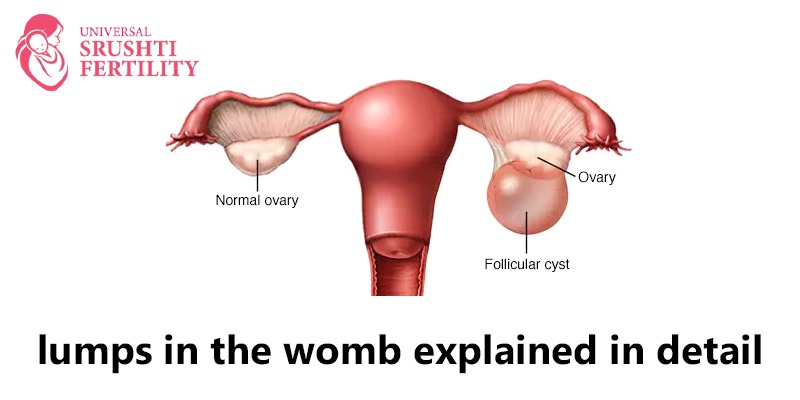Uterine Fibroids: Symptoms, Causes, Risk Factors
Uterine fibroids or lumps in the womb are a common type of noncancerous tumor that can grow in or on your uterus. Fibroids don’t always cause symptoms, but when they do, they can cause heavy periods, back pain, frequent urination, and pain during sex. Most small fibroids don’t need treatment, but larger fibroids can be treated with medicine or surgery.
What are fibroids in the uterus?
Uterine fibroids are growths that are made up of muscle and connective tissue from the uterine wall. Most of the time, these growths are not cancerous (benign). Your uterus is an organ in your pelvis that looks like an upside-down pear. Your uterus should be about the size of a lemon. It’s where a baby grows and gets stronger while a woman is pregnant. Lumps in the womb can grow inside the uterine wall, in the organ’s main cavity, or even on the outside. Fibroids can be different sizes, numbers, and places on or in your uterus.
What causes fibroids in the uterus?
No one knows what makes fibroids happen. Most fibroids occur in women who are their reproductive age. Most young women who haven’t had their first period don’t have them.
What are the signs of fibroids in the uterus?
Most fibroids don’t cause any symptoms and don’t need any treatment besides having your doctor check on them regularly. Most of the time, these are small fibroids. A fibroid that doesn’t make you feel sick is called asymptomatic. Larger fibroids can cause a number of different symptoms, such as:
• Heavy and painful periods
• Bleeding between your periods.
• Having a full feeling in your lower stomach (bloating).
• Frequent urination (this can happen when a fibroid puts pressure on your bladder).
• Pain during intercourse.
• Low backache.
• Constipation.
• Continual bleeding from the womb.
• Not being able to urinate or empty your bladder completely.
• Your stomach is getting bigger, which makes it look like you’re pregnant.
Most of the time, the symptoms of uterine fibroids get better or go away after menopause because hormone levels drop in your body.
Fibroids can make your periods very heavy or even cause you to bleed between your periods. You may also feel tired all the time. Talk to your doctor if you feel like you are getting anemia even though you have fibroids.
DIAGNOSIS AND TESTS
How are Uterine Fibroids Diagnosed?
Most of the time, fibroids are found during a regular checkup with your doctor. During a pelvic exam, they can be felt, and during a gynecological exam or prenatal care, they can be found. When you tell your doctor about heavy bleeding and other symptoms that go along with it, they may think of fibroids as a possible cause. There are several ways to find out if you have fibroids and how big and where they are. Some of these tests are:
• Ultrasonography is a non-invasive imaging test that uses sound waves to make a picture of your organs.
Hysterosalpingography (HSG): This is a detailed X-ray where a contrast material is injected first and then X-rays of the uterus are taken. People who are also being evaluated for infertility are more likely to have this done.
Son hysterography: In this imaging test, a small catheter is placed transvaginal and saline is injected into the uterine cavity through the catheter. This extra fluid makes the picture of your uterus clearer than it would be with a regular ultrasound.
During a laparoscopy, your doctor will make a small cut in your lower abdomen. To get a close look at your organs, a thin, flexible tube with a camera on the end will be put in.
What are the risks of having fibroids in the uterus while you’re pregnant?
Some studies have found that women with fibroids are more likely to have problems during pregnancy, such as bleeding in the first trimester, breech presentation, placental abruption, and problems during labor. Fibroids have also been linked to a higher chance of having a C-section.
Final words
Some fibroids are so small that they don’t cause any symptoms at all. Other times, fibroids can cause symptoms that are hard to deal with. Talk to your doctor if you feel any kind of pain or discomfort. Fibroids can be treated, and your symptoms can usually get better.


